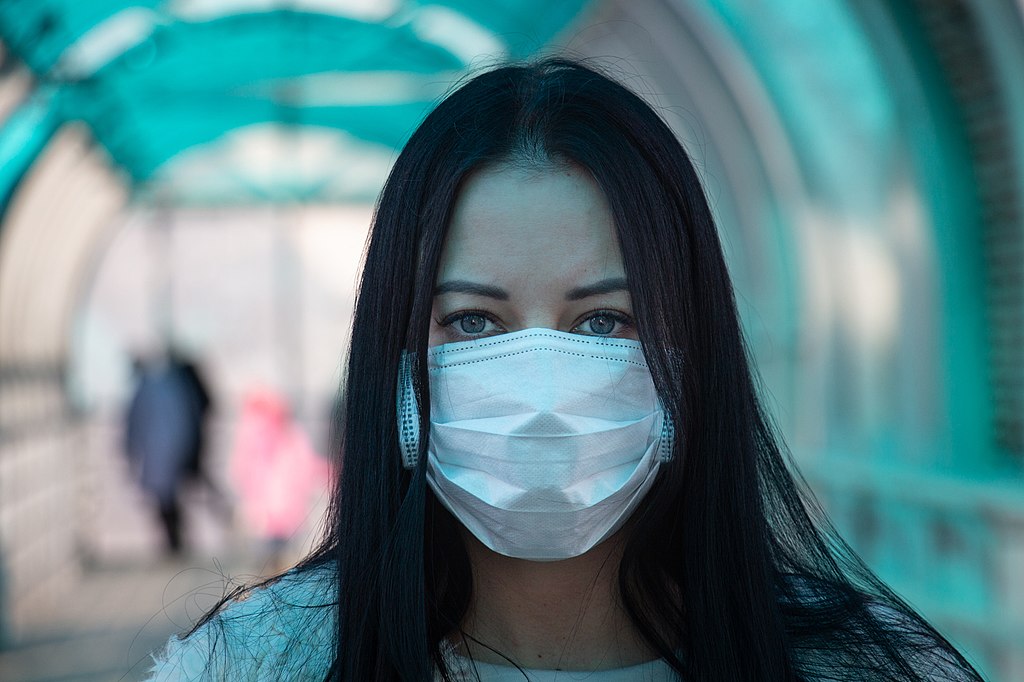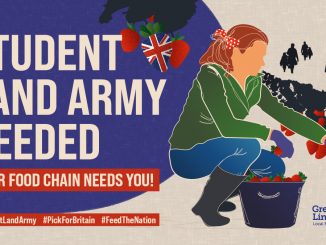
The COVID-19/Coronavirus outbreak is already disrupting international supply chains as more countries close their borders. Questions remain as to what this will mean for European food supplies and agricultural trade, as well as for how the institutions relate to member states.
More and more European countries are re-imposing border controls on goods or simply prohibit people from other countries to enter in an effort to control the alarmingly quick outbreak of the COVID-19 virus in the EU. Countries are worried about labour shortages in the horticulture fields and restrictions on labour movements, in France, the UK, Germany, Poland, while in the Netherlands, the precarious nature of migrant labour is being highlighted, which in itself is exposing these workers to extra risks and insecurities.
While the biggest concern of the viral outbreak remains risks to public health, fears are also mounting are also over impacts on global food trade.
British food companies believe market disruptions at ports could severely hit UK sales to China – worth almost 600 million pounds in 2018.
But the United Kingdom has also become dangerously dependent on Chinese imports in a multiplicity of areas ranging from vitamins to cheap packaging to vitamins, UK-based industry magazine The Grocer points out, quotes an industry source.
Traffic jams
The new and highly contagious Coronavirus (COVID-19) originated at a Chinese wild food market in Hubei province. Scientists suspect the deadly viral pneumonia comes from bats and has been able to jump into humans at a so-called wet market where life animals are sold and slaughtered, a video by Vox explains.
In a globalized world order outbreaks soon followed in the US and in Italy: bringing the virus onto European soil. To confine the virus several governments are implementing lockdowns, keep shops closed and people indoors. The EU has closed its external borders on March 17 and travel has also become restricted between member states for the first time since signing the Schengen Treaty in 1985.
The economic impacts of closing the border could prove severe. Transport companies have already notified customers about not being able to deliver products in time due to closing of borders, while German weekly Der Spiegel has published a photo of a long traffic jam at the German-Polish border. Reports based on police sources indicate the traffic jam amounted up to 60 kilometers on March 18.
German minister of Economy Peter Altmaier (CDU) has stressed that economic activities shouldn’t be hindered too much by current border restrictions since that would make it difficult for consumers to buy the products they’d need on a daily basis, Der Spiegel writes. On Monday March 16 the European Commission has published guidelines for commercial traffic within the Schengen area. Among official EU-recommendations is the idea to designate parts of international highways to international trucks. After all, according to European Commission president Ursula von der Leyen: ‘no country can produce all products by itself.’
And now, Italian petrol station owners are concerned that handling pumps and other activities makes them unsafe, further exacerbating the shutdown of the Italian economy.
European Institutions React (sort of)
The European institutions have been scrambling to react. Officially, the Treaty on the Functioning of the European Union (TFEU) doesn’t allow the European Commission to fully take the lead combating COVID-19 – and in reality, national goverments have acted unilaterally as the crisis has deepened. Indeed even federal states within Germany are acting unilaterally.
In any case, the Commission has been rubber stamping National government decisions on spending – Spain’s 20 Billion guarantee scheme , Germany’s individualised help for companies, France’s mobilisation of E300 billion liquidity and many more as can be found here.
National ministers of Health have recently met twice in Brussels, Dutch business lobby VNO-NCW reports.
In the video above Commissioner von der Leyden announced a suspension of state aid rules, essentially allowing states to spend whatever they deem appropriate, using a general escape clause.
The Commission has been able to set up a Coronavirus Response Team armed with a 400 million euro crisis-budget. The team is led by Ursula von der Leyen herself and consists of eight other EU-Commissioners to coordinate between different policy areas – DG Agri Commissioner Janusz Wojciechowski is not taking part. One of the main goals is to come up with solutions to the Coronacrisis while at the same time ensure the functioning of the internal market – amongst other things by demanding all border controls to be reported in Brussels first.
Meanwhile a stimulus of E750 Billion was announced by the European Central Bank.
CAP extension Farm to Fork Delay
Following a request from Italian authorities, ‘the European Commission has decided to allow member states to offer an extension of one month for the deadline for farmers to submit applications for direct CAP-payments and certain payments under the rural development pillar of the Common Agricultural Policy (CAP),’ DG AGRI writes in a press release . It would be up to national authorities whether or not to use such an extension. In addition, the Commission is working on policy initiatives to make possible broader state support for commercial ventures and wants to make available somewhere between 14 and 25 million euro’s for the Corona Response Investment Initiative (CRII) – financed by the withdrawal of other projects.
The Farm to Fork process – the unveiling of a flagship new approach to farming and food framed by the EU Green deal – has been delayed until 29th April at least.
The economic uncertainty in China has cast doubts on whether the country will be able to deliver food exports to world markets, the Food and Environment Reporting Network (FERN) reports .“Global chains are actually more vulnerable than locally based systems,” Ben Lilliston of the US-based Institute for Agriculture and Trade Policy has said to FERN. “Our farm policy makes us require this global market. We have to continue to export at high levels and grow exports in order for the farm economy to work. So we’re vulnerable to these kinds of disruptions.”
Besides a possible exporting gap, analyses of Google Trends data by culinary website Chef’s Pencil has also revealed a plummeting interest in cuisines from both China and Italy. Interest in Chinese food is down by 33 percent while Italian recipes get googled 24 percent less following the COVID-19 outbreak – despite reassurance by the European Food Safety Authority (EFSA) that the virus cannot be transmitted through food.
Dutch hub
The Netherlands is important hub in European agricultural produce – both because of a strategic seaside location and several major ports and its intensive production of meat, dairy and horticulture products. According to the biggest agricultural lobby organization LTO the impact of the pandemic in the Netherlands differs per sector but ‘availability of a sufficiently big labor force remains a point of concern. In horticulture entrepreneurs are to a large extent dependent on seasonal labor, mainly from Eastern Europe. Finding good personnel could become a problem the moment this epidemic expands and unrest increases.”
The Dutch government is preparing tax measures to lighten the burden for agribusiness and will back credit lines to ensure farm financing in the foreseeable future. LTO does however fear rising cost of logistics when cooling containers are confined to Dutch harbor docks because of delays at the border. A situation that might create severe problems for the Dutch agricultural economy since 25 percent of all products is sold in Germany and 11 percent in Belgium: ‘More than three quarters of all Dutch export in agricultural produce takes place in within European borders,’ LTO writes. Keeping logistical systems intact to be able to guarantee a sufficient supply of food throughout Europe is of crucial importance.
Supply chains
While European Commission officials are seeking ways to simplify cross-border food transports to keep the internal up and running, EU agriculture ministers is planning to discuss further improvements for food delivery in a video conference. Accounting agency Deloittem however, published a report asking the question whether the current crisis poses a threat for the system of globalized supply chains as a whole:
‘Could COVID-19 be the black swan event that finally forces many companies, and entire industries, to rethink and transform their global supply chain model? One fact is beyond doubt: It has already exposed the vulnerabilities of many organizations, especially those who have a high dependence on China to fulfil their need for raw materials or finished products.’
To reassure the public, German Agriculture minister Julia Klöckner hosted a press conference in Berlin on March 17 to stress supermarkets will remain fully stocked, Euractiv reports: “The food supply for the coming weeks and months is secured,” Joachim Rukwied of the German Farmers’ Association (DBV) said at the conference. But in Germany as in the Netherlands – problems could emerge harvesting crops, since many of the approximately 286,000 seasonal workers in Germany come from abroad. Therefor Klöckner is working on a plan to recruit required from other sectors, such as catering, which are currently at a standstill. In the worst case scenario temporary workers could also be flown in from abroad to cross closed borders. Klöckner also indicated she has been in talks with Lufthansa about creating a possible airlift to fly in food.
Bailouts and Bad Behaviour
However, even Deloitte asks whether the decades-long focus on supply chain optimization to minimize costs and drive up asset utilization has removed the flexibility to absorb possible disruptions.
Is Covid-19 a Black Swan event, Deloitte asks, which may finally force “many companies, and
entire industries, to rethink and transform their global supply chain model?”
Read the Deloitte report COVID-19-managing-supply-chain-risk-and-disruption
Author and activist Naomi Klein in a video for The Intercept even warns of a possible political exploitation of the COVID-19-crisis to ‘push for no-strings-attached corporate bailouts and regulatory rollbacks’.
Klein in 2007 authored the book ‘The Shock Doctrine: the Rise of Disaster Capitalism’ and notes similar dangers now. Already several national governments have pushed to help major polluters like airlines, or fossil fuel giants instead of promoting critical revaluation of the vulnerability of complex supply chains in agriculture and beyond. ‘Instead of rescuing the dirty industries of the last century, we should be boosting the clean ones that will lead us into safety in the coming century,’ Klein states. ‘The end of this story hasn’t been written yet.”







